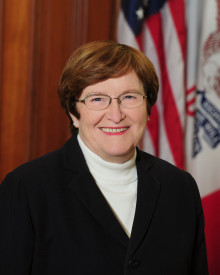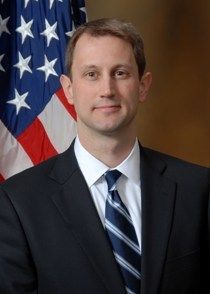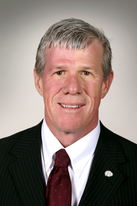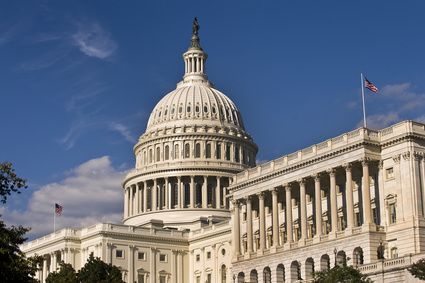
Today the U.S. House approved a bill that “would prevent any refugees from Syria or Iraq from entering the United States until the FBI, Department of Homeland Security and Director of National Intelligence certify that none of them are dangerous,” Cristina Marcos reported for The Hill. Representative Dave Loebsack (IA-02) was among 47 Democrats who joined 242 Republicans to pass the bill (roll call). Representatives Rod Blum (IA-01) and David Young (IA-03) also voted yes, but Representative Steve King (IA-04) was one of only two House Republicans to vote no. His office has not yet responded to my request for comment or issued a statement explaining that vote.
President Barack Obama has threatened to veto the American Security Against Foreign Enemies Act, which according to White House would “‘provide no meaningful additional security for the American people’ and impose new certification requirements that effectively end the refugee program” to assist those fleeing Syria or Iraq. Marcos reported, “GOP aides noted that because of absences, the vote would have met the two-thirds requirement to override a presidential veto if that vote had been held Thursday. Still, there’s no guarantee that Democrats would vote to override the president if the bill comes back to the floor.” Senate Minority Leader Harry Reid sounds confident the bill will not clear the upper chamber.
I will update this post as needed with comments from Iowa’s Congressional delegation or other reaction to today’s vote. The epic fail of the day goes to the Republican Party of Iowa for sending out the press release enclosed below. In that statement, Iowa GOP chair Jeff Kaufmann “applauds King, Blum, Young on Refugee Vote.” Check the roll call first, guys.
Note: most of the perpetrators of last week’s horrific terrorist attacks in Paris were French citizens.
UPDATE: King’s office provided the following statement: “I voted against the American SAFE Act because it fails to restore Congress’ Article 1 authority over admissions of migrants to the United States. How can we trust this Obama Administration who will not utter the words ‘radical Islamic jihad’ to accurately screen Syrian and Iraqi refugees as required in this bill? For that reason, I submitted an amendment to rules, which was ultimately not adopted, that would create international safe zones for refugees in their homeland. The safety and security of the American people is paramount. I respect the House trying to find a solution but I do not believe this was the right or strong enough one.”
The Iowa GOP issued a corrected press release, blaming “incorrect press reports of a unanimous Republican vote” for their error. Always wait for the official roll call. I’ve added the new statement below, along with a screen shot of a tweet (since deleted) from state party co-chair Cody Hoefert thanking all three Iowa Republicans “for voting to strengthen our national security.”
SECOND UPDATE: Blum’s statement is below as well.
THIRD UPDATE: Added Loebsack’s official comment on the vote. When I asked whether Loebsack would vote to override a presidential veto of this bill, his communications director Joe Hand responded, “Will have to see what happens in the Senate before we talk overriding any possible veto.”
FOURTH UPDATE: I’ve seen lots of progressives criticize Loebsack’s vote on social media, and some of that feedback must be getting through. On Friday afternoon, Loebsack for Congress sent out an e-mail blast with the subject line “my vote.” Scroll to the end of this post to read the full text. Most of the commenters on Loebsack’s Facebook status update about this vote criticized his stance. As of November 21, neither Loebsack nor his staff had responded publicly to the comments.
Continue Reading...













